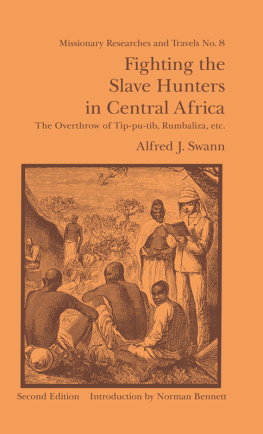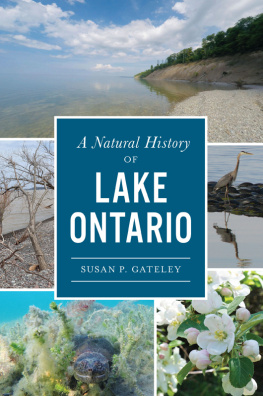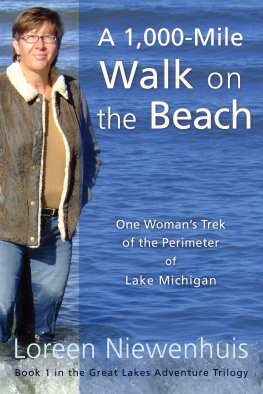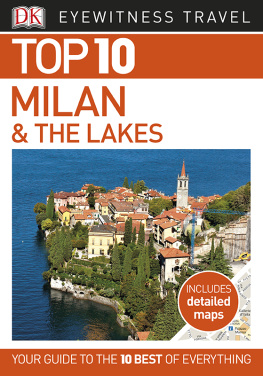CASS LIBRARY OF AFRICAN STUDIES
MISSIONARY RESEARCHES AND TRAVELS
No. 8
General Editor: ROBERT I. ROTBERG
H EAD-DRESS OF A EMBA G IRL
This head-dress is usually worn by warriors. It is tied by a string to the back part ot the head. A piece of ivory is suspended from her neck attached to a strin of beads. Her tribal marks may be Seen on the forebead and side of the face. She looks stern wiile facing the camera, but in daily life she is full of fun.
Published by
FRANK CASS AND COMPANY LIMITED
This edition published by Routledge - 2012
2 Park Square, Milton Park, Abingdon, Oxon, OX14 4RN
711 Third Avenue, New York, NY 10017
Routledge is an imprint of the Taylor & Francis Group, an informa business
| First edition | 1910 |
| Second edition | 1969 |
Transferred to Digital Printing 2005
ISBN: 978-0-714-61879-1 (hbk)
ISBN: 978-1-136-25681-3 (ebk)
General Editors Preface
A LFRED J. SWANN of the London Missionary Society was a lay missionary who spent most of his time on or in the environs of Lake Tanganyika. He sailed the Societys small ships and sought to spread the Gospel to the peoples who lived on islands in the lake or around its shores. And like so many other late nineteenth-century missionaries, he had secular commitments to which he tended to devote much of his time. He was particularly well-acquainted with the more important Arab merchants based on or near Lake Tanganyika, and his knowledge of them and their problems was full. Swann dealt with them on behalf of the Society, gained their confidence, and later acted to curb their influence during the growth of European hegemony in East Africa. Despite his institutional affiliations, he served the interests of British imperialism loyally, and later became a colonial administrator. The importance of this, Swanns only book, indeed stems more from his secular involvements with the Arabs and the forces of imperialism than from any portrayal of evangelical developments.
Professor Norman R. Bennett of Boston University is an authority on nineteenth century East Africa. He has published numerous articles on Arabs and missionaries in the interior and has here provided a fresh and exhaustive introduction both to this book and to the period about which Swann wrote.
4 December 1967 R.I.R.
Introduction to the Second Edition
D URING the years between 1885 and 1894 the regions around Lake Tanganyika became the centre of a peaceful but acrimonious struggle among Europeans of several nationalities, and of actual hostilities between Europeans and Arabs. Alfred J. Swann, mariner and lay missionary for the London Missionary Society, participated in the activity, developing a particular relationship to the Arabs and their leader, Muhammad bin Khalfan (or Rumaliza), that led him to play an equivocal role in the events leading to the final European domination of Lake Tanganyikas shores. Swanns society, the London Missionary Society, had decided in 1876 to take up what they considered the legacy of Livingstone and to establish a station at Ujiji, the scene of the meeting between Livingstone and Stanley, as a centre for missionary endeavour around the lake.1 The first missionary expedition reached Ujiji in August 1878; among the party was Edward C. Hore, destined to be the dominant member of the mission, and a predominant influence upon Swann, until he left Africa in 1888.2
The chosen location for L.M.S. activities, Ujiji, was then the principal centre of Arab3 settlement on the lake shores, with the indigenous Ha people accepting and profiting from the Arab presence.4 The resulting powerful Arab influence did not make Ujiji a very suitable choice for Christian endeavourHore described the town as a place for only Arabs, Wangwana, and their slaves & hangers onbut initial Arab hostility to the removal of the unwanted Europeans from under their scrutiny kept the missionaries there.5 They were soon joined, in January 1879, by rival Christians, the French Roman Catholic White Fathers. Hore optimistically observed, I do not think they will hinder us much, later concluding that the White Fathers were quite unfit and unprovided for this work. Nevertheless the French missionaries remained to become formidable rivals of the L.M.S.6 The two groups generally managed to live on outwardly friendly terms, but the subsequent active role of the White Fathers in opposing the Arabs later became a main stimulus to Swanns opposite conception of the proper European reaction to Arab strength around Lake Tanganyika.
The lake region where the British and French missionaries operated was then becoming an area of increasing activity for the Arabs. The principal route from the coast to the eastern Congo went through Ujiji, the principal lake port, with, from the mid- 1860s, growing numbers of Arabs and their followers passing on their way to gain the plentiful ivory of the politically weak peoples to the west. Other Arabs, most of whom acknowledged the leadership of Mwinyi Kheri, who dominated the Ujiji community and the northern shores of the lake, remained in the profitable, but less exploited, lake region, some raiding and trading for ivory and slaves, others supplying the caravans passing to and from the Congo. The African groups around the lake offered a good field for the relatively small Arab community of Ujiji. Only to the north, in Burundi, was there an African state successfully able, at least away from the lake, to withstand Arab incursions. Most of the other African peoples did not have centralized governments; this, added to the continual hostilities among the Africans themselves, allowed an increasing role for Arab raiders.
It is often asserted that the trade route serving Lake Tanganyika and the Congo was not a primary route for the exportation of slaves; it was rather the principal ivory-exporting route for East-Central Africa. Although it is certainly true that the Ujiji route was the principal ivory road, and that the routes leading across southern Tanzania to Kilwa and other nearby ports carried most of the slaves exported, the role that slaves played on the route from Ujiji should not be underestimated.7 The British representative in Zanzibar, John (later Sir John) Kirk, could report in 1876 that slaves from Lake Tanganyika, Manyema, and Urua (the Baluba country) were not known in Zanzibar,8 but there were sufficient reasons for their absence. Slaves taken around the lake and in the Congo were bartered to Africans for ivory along the route to the coast; there were also local slave markets, such as at Tabora and Ujiji.9 Once Europeans became settled on the routes to the coast, frequent reports confirmed a minor, but busy, slave business.10 Kirk recognized this fact, while still affirming that most slaves did not reach Zanzibar since those not traded along the route were absorbed into the Arab-run plantation economy around the northern Tanzanian coastal centres.11 Reports of the 1890s indicate that many more slaves must have arrived in Zanzibar, and especially in Pemba, than were noted,12 while Hore at the lake earlier indicated that there was a larger local slave trade than he had originally reported.13 In any case, raiding for slaves did go on around Lake Tanganyika; it increased during the years of Swanns missionary career, thus providing a clear indication that the markets from the lake to Zanzibar absorbed the growing numbers of slaves taken from the area of Swanns missionary endeavours.












